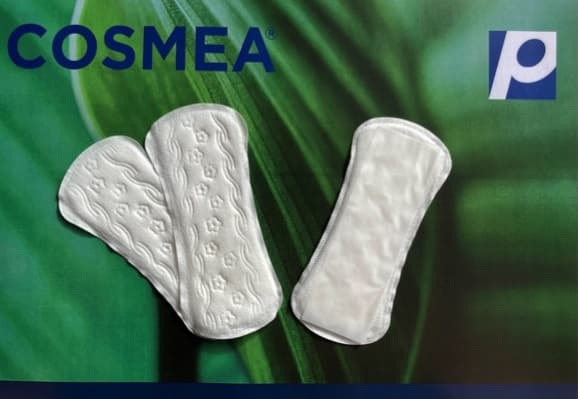Plant-based-nylon – Green-H2 26-04-2023 - Arhive
Plant-based-nylon – Green-H2
Crude Oil Prices Trend
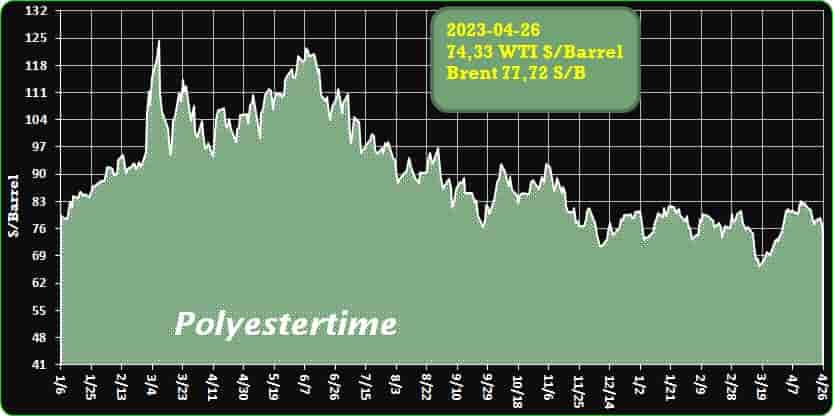
Crude Oil Prices Trend by Polyestertime
-Lululemon debuts plant-based nylon shirts
Lululemon Athletica Inc. has launched what it describes as its first plant-based, sustainably derived nylon items in an effort to win over customers looking for more eco-friendly clothing.
The novel material, which the Vancouver-based company claimed was produced by ‘fermenting plant sugars into the chemical building blocks used to form nylon,’ was launched on 18th April.
The items are a result of their collaboration with Genomatica, Inc., a provider of sustainable materials, in which Lululemon has held stock since 2021.
Together, the businesses used fermentation and biotechnology to transform plant-based materials into the building blocks of nylon. Plant-based-nylon – Green-H2
Petroleum made from coal, natural gas, or crude oil—fossil fuels known to exacerbate global warming—is commonly used to make nylon. Instead, the new shirts from Lululemon will be made using microorganisms with a biological basis.
The ‘Swiftly Tech Short Sleeve’ shirt for women and the ‘Nylon Metal Vent’ shirt for men are Lululemon’s first two plant-based nylon items.
“We’ve been working on plant-based nylon with our partner Geno for almost two years,” Esther Speck, Lululemon senior VP, global sustainable business and impact, said in a press release.
The price of the shirts, which is US $ 78 for men and US $ 68 for women, is comparable to the retail price of counterparts made of traditional fabrics.
The short-sleeved shirts are composed of 3 per cent elastane, 40 per cent recycled polyester, and 50 per cent nylon from biological sources. 30 per cent of the elastane component is made from plants. Plant-based-nylon – Green-H2
“Today marks a major achievement: Biotechnology has successfully fermented plant sugars into the chemical building blocks used to make nylon, bringing to life a renewable, plant-based nylon,” Geno founder Christophe Schilling said in a statement.

-Expanded polypropylene containers for food delivery revealed by Seal Packaging
Seal Packaging has launched Infinity TopSeal – its mono-material, recyclable packaging solution made from Klöckner Pentaplast’s expanded polypropylene with a heat-sealable film lid – for use in food service and delivery applications.
Infinity TopSeal is envisioned for use in restaurants, pubs, garden centres, healthcare, and other applications. It is designed to serve as a drop-in replacement for rigid polypropylene containers without requiring additional investment, as it is apparently compatible with existing sealing equipment. Plant-based-nylon – Green-H2
As well as being easy to use, according to Seal Packaging, it offers insulating properties that claim to keep food over 10°C hotter over a longer period of time than its market alternatives. At the same time, it is said to provide a low heat transfer rate that keeps the packaging itself cool to the touch.
Additional features reportedly include water resistance without the need to provide extra coatings or additives; and resistance to the acids, alkalis, and hot oils that can be found in various foods and sauces. These features are set to keep food warm and reduce both leakage and odour transfer.
Furthermore, its tamper evidence is said to ensure that food is secure and delivered with integrity. As such, the solution aims to guarantee hygiene and prevent product loss or interference during delivery, which both protects consumers and maintains the reputation of the food outlet.
With various retailers phasing expanded polystyrene out of their packaging, especially in light of legislative changes banning the material in Scotland and England, expanded polypropylene is anticipated to be a suitable replacement. Infinity TopSeal is also expected to contribute towards Seal Packaging’s goal of enabling its customers to reach net zero and ensuring that its products are as sustainable as possible across every stage of the value chain. Plant-based-nylon – Green-H2
“At Seal Packaging, our mantra is ‘Packaging with Integrity’ and we are always seeking sustainable solutions which deliver as many operator and end-user benefits as possible,” says Kevin Curran, who acquired Seal Packaging alongside Sally Gabbitas last year. “Infinity TopSeal is a truly revolutionary packaging solution, which ticks so many boxes.

-Krones: Consistently high speed achieved with recyclable sleeves
Standard PETG sleeve labels remain a major challenge for recycling systems because it is impossible to separate them dependably from the crystallised PET that bottles are made of. This may reduce a recycling system’s efficiency. For the circular economy, in turn, this can prevent valuable resources from being used to optimum effect.
Successful field test at PepsiCo in Rodgau
To counter that, the label manufacturer CCL has developed a new product: EcoFloat sleeves. These consist of polyolefin and therefore possess a lower density than the PET that bottles are made of. This allows the sleeve labels to be separated from the bottles in recycling systems, using the sink-float method. Plant-based-nylon – Green-H2
In a field test conducted on a high-speed Pepsi-Co line in Rodgau, a sleeving machine from Krones has now successfully dressed 0.5- and 1.5-litre Lipton Iced Tea bottles in these recyclable EcoFloat polyolefin sleeve labels, which are applied using the following kit:
- a Sleevematic TS sleeve labeller with a Multireel S magazine for the sleeve reels,
- a Shrinkmat steam tunnel,
- two Linadry container dryers, one installed upstream of the labeller and the other one downstream of the steam tunnel.
In order to maximise both machine availability and efficiency with the EcoFloat sleeves, the Sleevematic TS has been equipped with special add-on components suitable for processing polyolefin, like specifically adapted rollers and cutting tools. It took just one day to install them, with the machine then immediately reaching top speed and maximum efficiency. Plant-based-nylon – Green-H2
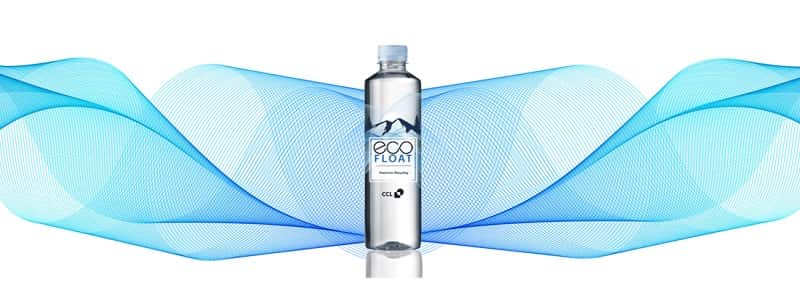
-As Packaging Recycling Evolves, So Does the How2Recycle Label
SPC’s How2Recycle label program is drawing on members’ experience and working with industry groups to guide consumers to a more sustainable future.
The How2Recycle sustainability label is evolving, with multiple projects queued up to keep consumers up to date on what’s recyclable and to improve the quality and quantity of recycled materials.
The How2Recycle standardized labeling system began as a pilot program in the United States in 2012 and has also been used in Canada for several years.
Its goal is to clearly communicate recycling instructions to consumers and reduce confusion by improving the reliability, completeness, and transparency of recyclability claims. Plant-based-nylon – Green-H2
How2Recycle is a project of the Sustainable Packaging Coalition (SPC) ,which is part of GreenBlue, a Charlottesville, VA-based nonprofit. Some 500 brand owners and retailers are members of How2Recycle, and tens of thousands of products currently display the label.
How2Recycle recently announced the next steps in its evolution, which include:
- Increasing consumer education and interaction with a more dynamic label.
- Developing strategic relationships with industry partners, including the Recycling Partnership, the Carton Council, and the Association of Plastics Recyclers..
- Launching a new packaging design collaborative with SPC and How2Recycle members to bring together brands, retailers, and design agencies to prototype future How2Recycle labels. Plant-based-nylon – Green-H2
- Participating in changes to the US Federal Trade Commission (FTC) Green Guides. FTC has extended to April 24, 2023 the public comment period on potential updates to its Green Guides, which regulate environmental marketing claims. The How2Recycle label was designed to comply with the FTC Green Guides.
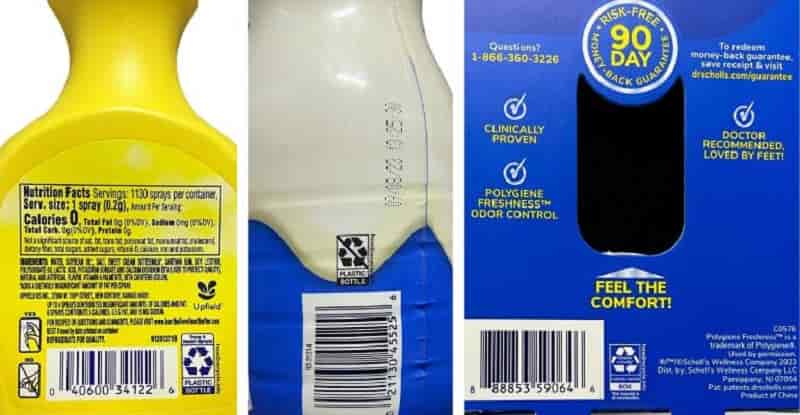
-DyStar to restructure German facility, reduce staff
Speciality chemical company DyStar has announced plans to restructure its Ludwigshafen facility located in Germany, which it says will involve a diversification of production activity out of Europe and a reduction in manpower.
he strategic decision to update its Germany facility has been made by DyStar in response to changing business conditions and market shifts, the company said.
“This is an important strategic move for DyStar. We will focus on developing key emerging markets, which have been shifting over a decade. In the wake of higher energy costs and inflation, DyStar is determined to further improve cost efficiency and drive sustainable productivity as we continue to deliver the highest quality of innovative products that support the global supply chain,” said Xu Yalin, managing director, and president of DyStar Group. Plant-based-nylon – Green-H2
The facility has been an integral part of the company’s global network, the company says. DyStar inherited the facility from its founders who started the Indigo research and manufacturing more than 125 years ago.
Eric Hopmann, chief commercial officer of DyStar Group, added: “The restructuring of this facility will be carried out in a phased manner. DyStar will diversify the production activity out of Europe and start with the reduction of manpower as a consequence. DyStar’s customers can be further assured of undisrupted supply, hence their production should not be affected as we will work closely to meet their specific requirements.”
Dystar said it understands the change will impact its employees, customers and suppliers, but said it is “committed to treating all affected parties with due respect and dignity throughout the restructuring process”.
The company added: “We thank all our employees for their loyalty and dedicated service, and we are committed to providing them with all necessary support, including severance packages. DyStar will also work with local authorities and Human Resources to support our affected employees and their families during this period.” Plant-based-nylon – Green-H2
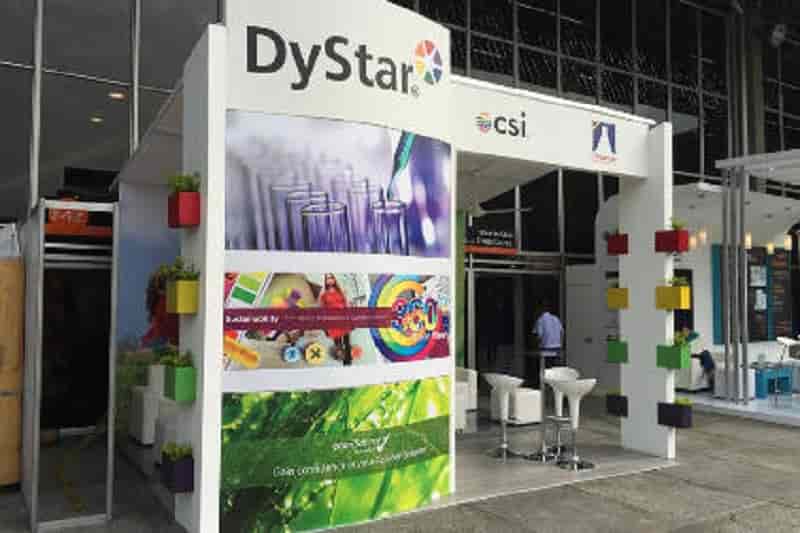
-Monforts’ seminars and discussions on green hydrogen as new energy source for textile processes
At ITMA 2023 in Milan from June 8-14 this year, Monforts is organising two free-to-attend seminars and discussions on the potential of green hydrogen as a new energy source for textile finishing, drying and related processes.
The seminars will take place at the company’s stand B106 in Hall 18 on Friday June 9 at 11am, and Monday June 12, also at 11am, and all are welcome.
Monforts is currently leading a consortium of industrial partners and universities in the three-year WasserSTOFF project, launched in November 2022, that is exploring all aspects of this exciting and fast-rising new industrial energy option.
The target of the government-funded project is to establish to what extent hydrogen can be used in the future as an alternative heating source for textile finishing processes. This will first involve tests on laboratory equipment together with associated partners and the results will then be transferred to a stenter frame at the Monforts Advanced Technology Center (ATC). Plant-based-nylon – Green-H2
“Everybody knows that textile finishing is a high energy consuming process,” says Monforts Managing Director Gunnar Meyer.”To make this process more efficient, Monforts already offers several solutions, but as a technology leader we are also rising to the challenge of exploring alternative heating options to be ready for the future.”
Purity
To be considered “green”, hydrogen must be produced using a zero-carbon process that is powered by renewable energy sources such as wind or solar. Currently, the cleanest method of hydrogen production is electrolysis, using an electrically-powered electrolyzer to separate water molecules into hydrogen and oxygen. The purity of the hydrogen is also important, and impurities must be removed via a separation process.
“Despite all its advantages, there are obstacles to overcome on the way to widespread, economically-feasible green hydrogen use,” explains Monforts Textile Technologies Engineer Jonas Beisel.
“Until there are widely available, reliable and economical sources of this clean power, the cost of producing it will remain prohibitive. Plant-based-nylon – Green-H2
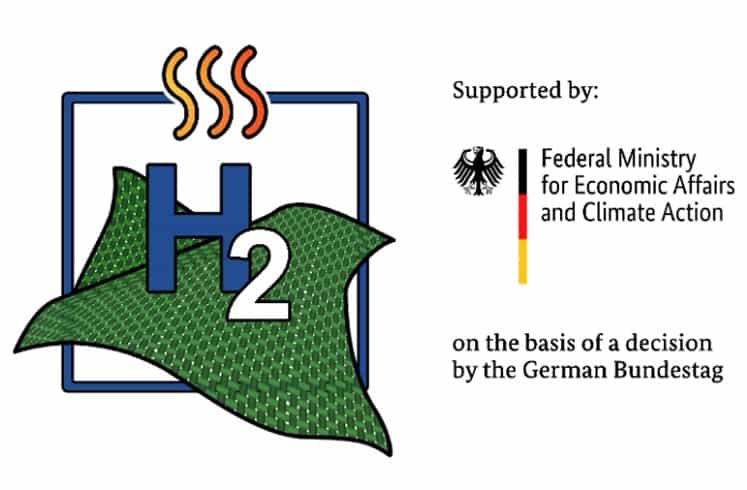
-Kelheim, Sandler, pelzGroup Develop Plastic-Free Pantyliner
To be sold under Cosmea brand later this year
Viscose speciality fiber manufacturer Kelheim Fibres, nonwovens producer Sandler and hygiene product manufacturer pelzGROUP have jointly developed a new panty liner that is plastic-free according to the European Single-Use Plastics Directive (SUPD). This innovative solution is a step towards reducing the amount of plastic in hygiene products – and thus also a contribution to tackling the global problem of plastic pollution.
According to a UNEP study on marine litter and microplastics, eight million tons of plastic end up in the oceans every year. A significant portion of this pollution comes from single-use plastic products, including conventional period products such as pads or panty liners. The need for sustainable alternatives has never been greater, and this collaboration between Kelheim Fibres, Sandler, and Pelz is a much-needed step in the right direction.
The partnership between the three companies was formed under the Open Innovation principle, which allowed for creative idea exchange and facilitated the development of a truly innovative product. Plant-based-nylon – Green-H2
According to Jessica Zeitler, R&D Specialist at Sandler, “Our collaboration with Kelheim Fibres and pelzGROUP is a great example of how companies can work together to create solutions that benefit both the environment and consumers. We are proud to be part of this project and the opportunities it offers.”
For hygiene product manufacturer pelzGROUP, it is important to combine sustainability and performance to achieve broad acceptance in the market. “Our panty liner meets the strict requirements of the European Single-Use Plastics Directive (SUPD) while also matching the performance of conventional synthetic products. At the same time, our new panty liner has a completely European supply chain. This means short distances and therefore low CO2 emissions, and – especially in times of global disruption – reliability for our customers,” emphasizes Dr. Henning Röttger, Head of Business Development at pelzGROUP.
“Our viscose speciality fibres are an environmentally friendly and high-performance alternative to synthetic materials,” says Dominik Mayer, project manager Fibre & Application Development at Kelheim Fibres. Plant-based-nylon – Green-H2
